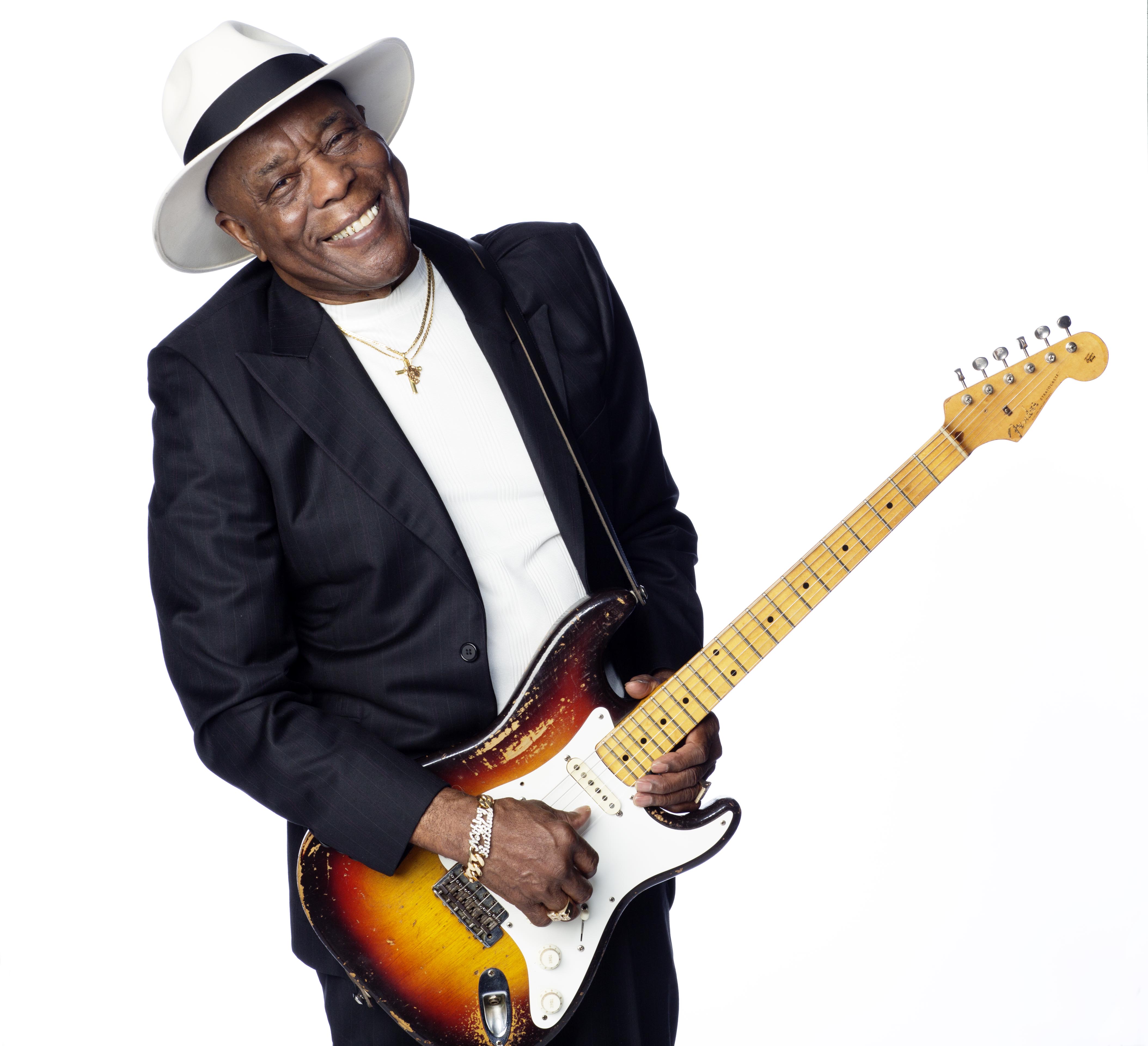If you goWhat: Buddy Guy.Where: Coca-Cola Stage.When: 9:30 p.m. tonight.Admission: Riverbend 9-day wristband ($50); one-day wristband ($26).
Riverbend 2014June 6-14 • 21st Century Waterfront, Chattanooga, TNView in depth coverage
TONIGHT'S SCHEDULECoke Stage• 9:15 p.m. Buddy GuyBud Light Stage• 5:30 p.m. Seven Handle Circus• 7 p.m. Robert Randolph & The Family Band• 9:15 p.m. Silent DiscoVolkswagen Stage• 5:45 p.m. AZ One Band• 7:15 p.m. Blaze and FriendsTVFCU Stage• 6 p.m. JetSet GetSet• 7:30 p.m. Too Slim & The Taildraggers• 9 p.m. BombadilUnum Stage• 6:15 p.m. Rusty Wright Band• 7:45 p.m. Clare Dunn• 9:15 p.m. The WannaBeatles
Too loud. Too much feedback. Too aggressive. Too wild. Just plain "noise."
Such complaints were leveled against guitarist Buddy Guy after he moved from his home in Louisiana to Chicago in the late '50s - and the complaining came from the guy who gave him a job playing guitar.
Leonard Chess, owner of blues label Chess Records, hired Guy as a session guitarist in 1959, which led to him playing on records by such acts as Muddy Waters, Howlin' Wolf and Koko Taylor. But when Guy tried to record his own solo records, Chess rejected them as too ... Buddy Guy.
But with a flamboyant onstage persona and a cranked-up, amp-heavy distorted playing style, Guy's sound got out there through his live shows and his various work on other acts' songs.
By the mid-'60s, the sound was picked up by the ears of some other guitarists, notably Eric Clapton, Jeff Beck, Jimmy Page and Jimi Hendrix.
In a 2004 interview with Uncut magazine, Clapton recalled that it was Guy who led him to create the power trio Cream in 1966. "I'd seen Buddy live and it was unbelievable," Clapton said. "He was in total command and I thought, 'This is it.'"
The late Stevie Ray Vaughan said "there wouldn't be a Stevie Ray Vaughan without Buddy Guy." Led Zeppelin's Page called him "a monster." Beck once said Guy's solos can veer into "total manic abandon ... They broke all boundaries. I just thought, 'This is more like it!'"
"When I first heard him it was way back when and his playing sounded really free-form," says Chattanooga blues guitarist Drew Sterchi, who has been playing guitar since 1962. "It wasn't psychedelic, it was devil-may-care, I-play-what-I-want-dammit kind of feeling."
Unlike many blues artists of the '60s, who were more "subdued," says Sterchi, Guy played with volume and distortion, "forcing his amp into overdrive."
"It may be normal now, but it wasn't back then," he says.
Thorpe McKenzie, local leader and guitarist for the WTM Blues Band, calls Guy "a living legend."
"What is so unique about Buddy Guy, he is the last man standing from the fairly early days of the Chicago blues," McKenzie says. "He's one of the very few performing bluesman who was on the stage with players like Muddy Waters and Howlin' Wolf.
"He's endlessly creative; he takes standards and turns them around in way that just leaves you scratching his head, wondering, 'What did he just do? What did he just play?'"
Guy, 77, says he's only being himself.
"I don't know but one way to play," he told the Listening Room blog in 2011. "I don't (play) for one kind of audience. Whether it's New York, Pennsylvania, Boston or whatever, I just come out and give you 110 percent of Buddy Guy."
Being himself means using a 150-foot guitar cord that allows him to wander wherever he wants when playing live. In 1995, when performing at the late City Stages festival in Birmingham, he walked off the stage and climbed up the fire escape on a nearby building, playing all the while.
"You know, you'll never see a blues guy with that little microphone around his ear, dancing and playing at the same time," Guy told GuitarCenter.com. "When you see a bluesman, he's ringing wet and giving you the best he's got. I've been doing that all my life."
Being Buddy Guy all his life has gotten him inducted into the Rock and Roll Hall of Fame and won him six Grammys and 23 W.C. Handy Blues Awards. Even Leonard Chess finally came around to Guy's style of playing - or at least the way it was attracting the ears of music fans.
"Just before he died, he called me into his office," Guy recalled to GuitarCenter.com. "He bent over and said, "I want you to kick me in my ass." He'd been listening to Eric and Hendrix. He said, 'You've been trying to sell me this (sound) and I've been running you out of the studio calling it noise. Now it's making millions!'"
Contact Shawn Ryan at sryan@timesfreepress.com or 423-757-6327.


